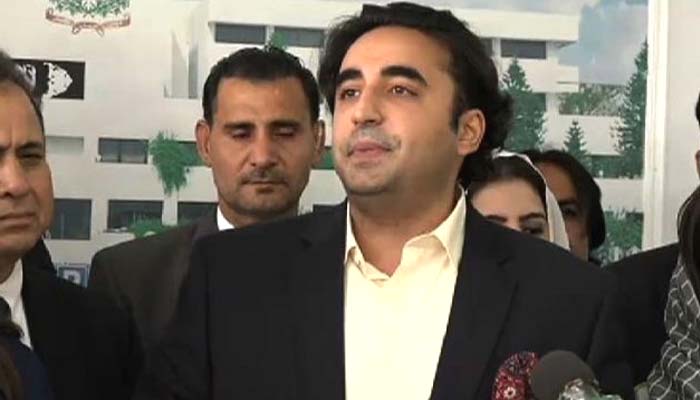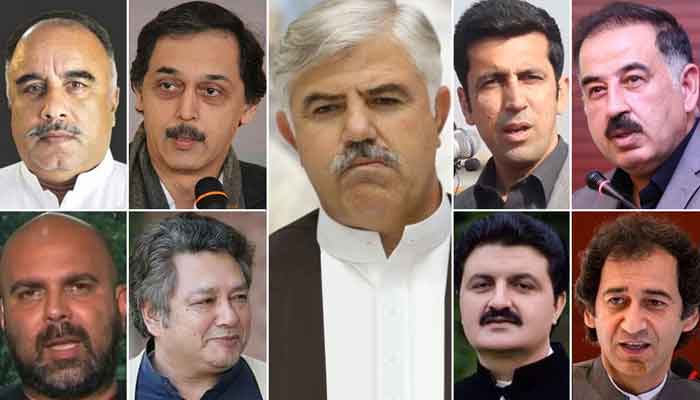By Saad Rasool
On Monday, this week, Nashwa Ali – a nine month old infant in Karachi, who had fallen prey to medical negligence and malpractice at Dar-ul-Sehat Hospital – breathed her last. Her state of solitary agony, which she was too young and too paralyzed to express, will forever remain as an indelible blotch on the rotting fabric of our national conscience.
Undoubtedly, she has joined the ranks of ‘the girl who was buried alive’ (Quran 81:8). And most certainly, we as a nation, will have to answer as to ‘for what sin she was killed’ (Quran 81:9).
Nashwa is not the first child who has fallen prey to the atrocities of our failing healthcare system. The culprits of her death are not the first to benefit from a decadent criminal justice system. And her parents are not the first to lament, facing the heavens, for some divine intervention against a system that nether recognizes nor cares for their unquenched suffering.
It is futile to recount the customary facts of Nashwa’s case. It is pointless to narrate the token statements of the few political leaders who bothered to express solidarity with her family’s plight. It is meaningless to ask why the owners of the hospital have still not been arrested. It is worthless to contemplate that justice, in its true letter and spirit, will be served against those who are responsible for Nashwa’s death. And it is purposeless to even entertain the possibility of long-term structural reforms that ensure the safety of countless other Nashwas’ seeking treatment from our broken healthcare system.
According to a recent report published by the World Health Organization, Pakistan ranks 122 (globally) in terms of the quality and reach of its healthcare systems; much behind even some of the far less developed countries such as Lithuania (73), Libya (87), Fiji (96), Iraq (103), and Tongo (116). There are hundreds of ghost-hospitals all across our land. The best and the brightest of our doctors continue to seek more lucrative career opportunities abroad. Thousands of patients wait in the hallways of public healthcare facilities, dying a little with each breath. And recurring menace of drug/medication shortage continues to add to the plight of our people.
As it turns out, according to figures provided by the World Health Organization, the Government of Pakistan spends only 1.5% of its GDP on ‘Public Health’ (as opposed to almost 6% spent by most other developing countries). In fact, the private sector, which is considerably more expensive (and thus beyond the financial reach of majority of Pakistan’s population), spends at least three times as much on providing health-related services within the country. A recent report published by the College of Physicians and Surgeons, Pakistan, details how Pakistan spends 80% of its health budget on tertiary care services, utilized by only 15% of the population, and 15% on primary healthcare services, used by 80% of the population. Furthermore, 98% of all healthcare related expenditure, in Pakistan, are done out-of-pocket, and over 75% of patients visit and use private-sector healthcare facilities. The total public health budget of Pakistan dwarves in comparison to the budget allocated for the top three infrastructure projects, and the government healthcare facilities receive a smaller fraction of the overall budget, than the subsidy provided to the airline-sector alone.
This deprecation of our public health is not simply the result of inadequate funds. The deeper issue stem from a constitutional disregard of the sector.
To this end, let us start by recognizing that reform of our healthcare sector is, at its core, divided in the reform of two different (yet connected) areas: 1) regulation of private healthcare institutions, and 2) restructuring of the public/governmental healthcare system. The first (private healthcare) is primarily regulated, on the one hand, by federal institutions such as PMDC (who certify the expertise of doctors) and on the other by provincial regulatory mechanism (such as the Punjab Healthcare Commission). However, this regulation remains porous, in large parts, and there is no mechanism to oversee the everyday running of private healthcare institutions.
In order to assess the mechanism for operation and regulation of public/governmental healthcare sector, it is pertinent to first review the relevant constitutional paradigm. From the constitutional perspective, per Article 70(4) read with Article 142, the Federal Legislature has exclusive legislative authority in regards to items specifically enumerated in the Federal Legislative List (Fourth Schedule of the Constitution). As a result, the Federal Government (alone) has the authority to constitute ministries and sectors that are expressly mentioned in the Federal Legislative List, and all other items (post 18th Constitutional Amendment) fall within the exclusive legislative domain of the respective Provincial Assemblies (Article 142 (c)). And, admittedly, “Public Health” finds no mention in the Federal Legislative list at all, making it a ‘Provincial’ subject.
This constitutional paradigm, in which public health is exclusively a provincial subject, can also be traced through the earlier constitutional schemes of Pakistan, including the 1956 Constitution, and the 1962 Constitution. Still, however, throughout our history, there has existed a Federal Ministry of Health (presently the Ministry of National Health Services (Regulation and Coordination)), and the Provinces have taken no meaningful steps to assert their respective autonomy over the subject.Existing somewhere between this confused constitutional domain, of a Federal healthcare apparatus vis-a-vis competing Provincial autonomy, our national focus on public health has suffered at the hands of debilitating apathy. Pakistan, having signed and ratified over a dozen public health related conventions and treaties, continues to lag behind the modern world in terms of provision of healthcare to its citizenry. We continue to host numerous diseases (e.g.: Polio) that have been eradicated from most other countries of the world. Our population growth is disproportionate with our healthcare budget. Our public sector doctors continue to seek better opportunities abroad. Our borders continue to stay porous for smuggled (expensive) medication. And caught in this myriad of public health problems, the people of Pakistan struggle to find their rightful place in the comity of healthy nations.
Faced with this sad state of affairs, one must recognize that the void in our public healthcare space is being filled (in part) by select private citizens of miraculous abilities; individuals who have no legal or constitutional obligation to participate in the public healthcare space, but have accomplished miracles through the dint of their hard work and moral commitment. This includes, above all, the late Abdul Sattar Edhi, and SIUT’s Dr. Adeebul Hassan Rizvi.
Why do State institutions exhibit such blind spots when it comes to public health? Why is this issue not front and center in each political party’s manifesto and agenda? Why are tragedies, such as Nashwa Ali, nothing more than momentary spikes in media coverage? Why does the silent suffering of the sick find no space in the political and national narrative?
The answer to these, and related questions, is simple: a healthy man, woman, or child, does not make for a great campaign slogan, or form the crown-jewel of political achievement. It cannot be advertised, like the Metro Bus, on placards and holdings. Public health does not manifest itself as a monument that beckons an opening ceremony from the political office-holders. It cannot be displayed, as a mark of development, to foreign dignitaries. It does not suit our conventional need for tangible progress. And so, naturally, it does not form a priority in the hackery of our political system.
The crisis of public health, across Pakistan, is likely to continue till such time that we shift our political preferences away from tangible monuments of stone, and towards the intangible monuments of well-being. And if our political elites are not willing to do so, it is incumbent upon us, as conscientious citizens of the State, to force their hand through all our political might, public narrative and (if necessary) street power.







